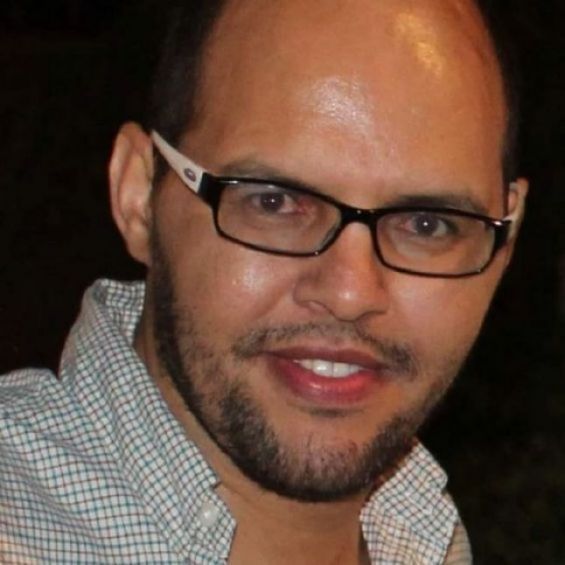Born in Tinghir, Rachid El Fatimy left Morocco at the age of six to join his father in France. During his high school years, he developed a passion for science. In Montpellier, he finished high school and moved to Paris. «My father was a construction worker, he worked in plumbing and masonry while my mother looked after us at home», he recalled.
To the mother-of-seven, it was important for everyone to gain access to higher education. «Through us, my mother obtained the diplomas that she could not obtain, given the development situation in south-eastern Morocco in the 1960s», Rachid El Fatimy recalled.
«I would always hear about theoretical physics.I later discovered biology in high school and there was a lot going on in molecular biology back in the time, so the idea of doing research in that area started to grow on me. It was about using physics and biology at the same time».
Biomedical research between France, Canada and the United States
The Morocco-born scientist was also marked by his years of studies in Paris : «Teachers also gave me the desire to deepen my research, in particular my thesis supervisor at the Ecole Normale Supérieure in Paris, where I worked on brain development and the stress response». El Fatimi expressed his pride to have been part of the first group of researchers to show the effects of alcohol on brain development, explaining how alcoholic stress would disrupt the migration of neurons in the brain. «It was a childhood dream that was not necessarily feasible, given the trajectory of post-colonial emigration, but I have never given up on it», he told Yabiladi.

But Rachid El Fatimy, with his two and a half years of postdoctoral research at the University of Laval, Canada, certainly proved he was heading towards a different migratory trajectory. While in the Great White North, he worked on topics related to neuronal connections disturbance, to better understand brain deregulation and intellectual disability.
In 2013, he was offered a position in Boston and thence settled in the United States. «I joined Harvard as a young researcher, then I worked on brain cancer and Alzheimer's disease. I joined UM6P too, but I'm still finalizing research work at Harvard», he said. Indeed, Rachid's research while at Harvard was awarded. The distinguished work in question investigated the role of non-coding RNAs in brain cancer.
«We have proposed a therapeutic route through an approach to editing genomes, which has been patented.We have also shown that increasing a small RNA in the brain improves the condition of patients afflicted with Alzheimer’s disease.We are trying to develop molecules for treatments».
For Rachid El Fatimy, this field of biomedical research constitutes «the medicine of the future» and is «cutting edge». It «allows us to understand the mechanisms of a disease to play on the expression of genomes to restore them to good condition», according to him.

«I don't have the impression that this is an area where we invest a lot in Morocco. But we will gain a lot by studying these themes, in order to improve access to health care, particularly the treatment of cancer in the country», he explained.
Popularizing science among rural youth
These treatments remain expensive still today. But in the long term, they are expected to be «a revolution in medicine», he said. It is in this context that he also conducts his research at UM6P, where he works in particular on non-coding RNA themes.
His ambition is to develop this research in Morocco to turn it into medical tools, but he also plans to create a start-up to meet the immediate needs of research in the country, in particular for the manufacture of antibodies for hospitals.
Another ambition for Rachid El Fatimy : making science available to all and getting out of cold research laboratories and austere structures. Dreaming of duplicating an initiative that he led in Paris, Canada and Boston, he aspires to «raise awareness among high school and young students to scientific research, by introducing them to these fields of study, through school events». It also aims to create «knowledge libraries», as has already been supervised from Paris for the villages around Tinghir, with the Palmiers et Savoir association.
His idea is to «set up a small media library, in addition to a science festival, to help children and young people create scientific tools and conduct experiences which amaze them, allowing them to learn and to develop as well as having fun». With eyes full of hope for the next generations, he explained that the team «are involving teachers so that the devices manufactured benefit children in rural areas».





 chargement...
chargement...













